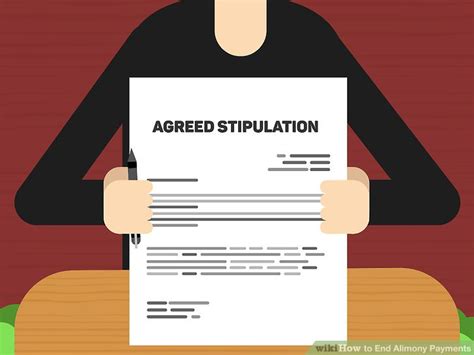Legal Ways to Lower Your Alimony Payments
Divorce is rarely easy, and the financial ramifications can be especially challenging. Alimony, or spousal support, can significantly impact your budget. If you're struggling to meet your alimony obligations, you're not alone. Fortunately, there are legal ways to potentially lower your payments. This article explores those options, providing crucial information to help you navigate this complex area of family law. Remember, this information is for educational purposes only, and you should always consult with a qualified attorney in your jurisdiction for personalized legal advice.
Understanding Alimony Modifications
The key to lowering alimony payments lies in demonstrating a substantial change in circumstances since the original divorce decree was issued. Courts are generally reluctant to alter alimony agreements unless significant factors warrant a modification. This change must be unforeseen and unanticipated at the time of the original order. Simply experiencing financial hardship is usually insufficient.
Common Grounds for Modification
Several circumstances might justify a request to modify your alimony payments:
1. Material Change in Income:
This is the most common reason for alimony modification. A significant decrease in your income, due to job loss, illness, or business downturn, can be grounds for a reduction. You will need to provide substantial documentation to support your claim, such as tax returns, pay stubs, and employment verification. Conversely, a significant increase in your ex-spouse's income could also be used to argue for a reduction in your payments, depending on the terms of your original agreement.
2. Unforeseen Medical Expenses:
Unexpected, substantial medical bills, either yours or a dependent's, can impact your ability to pay alimony. Detailed medical records and bills are necessary to support this argument.
3. Change in Living Circumstances:
Major life changes, such as a new dependent (child from a subsequent relationship) or a significant increase in housing costs (due to unforeseen circumstances, not a voluntary upgrade), could potentially justify a modification. Clear documentation is crucial, especially when dealing with housing expenses.
4. Cohabitation:
In many jurisdictions, cohabitation with a significant other can be considered a material change in circumstances. This is especially true if the cohabiting partner provides financial support. The court will typically examine the nature and extent of the relationship and financial interdependence.
5. Retirement:
Retirement can be a significant change impacting your ability to pay alimony. You will need to demonstrate a substantial reduction in income due to retirement. This might involve showing proof of retirement income, Social Security benefits, and any pension plans.
What Happens After Filing a Modification Request?
After filing a motion to modify your alimony payments, a judge will review your request and the supporting documentation. This process may involve hearings, discovery, and potentially expert testimony. The court will carefully consider all factors before making a decision. The outcome is never guaranteed, and the judge may deny your request completely or grant only a partial reduction.
How to Strengthen Your Case:
- Comprehensive Documentation: Meticulously document all evidence supporting your claim. This includes income statements, bank records, medical bills, and any other relevant information.
- Legal Representation: Seek experienced legal counsel. An attorney specialized in family law can guide you through the process, build a strong case, and represent your interests effectively.
- Honest and Transparent Presentation: Present your case honestly and transparently. Any attempts to mislead the court will likely harm your chances of success.
Frequently Asked Questions (FAQs):
Can I stop paying alimony altogether?
Generally, you cannot unilaterally stop paying alimony. Doing so could result in serious legal consequences, including wage garnishment, liens, and further court action. You must follow the legal process for modification.
What if my ex-spouse refuses to cooperate?
Non-cooperation from your ex-spouse can make the process more challenging, but it's not insurmountable. Your attorney can use legal procedures to obtain the necessary information.
How long does the modification process take?
The timeframe varies widely depending on the complexity of the case, court scheduling, and other factors. It could take several months, or even longer, to reach a resolution.
Remember: Navigating alimony modifications requires careful planning and legal expertise. The information provided here is for general knowledge and should not be considered legal advice. Always consult with a qualified attorney to discuss your specific circumstances and understand your legal options.

